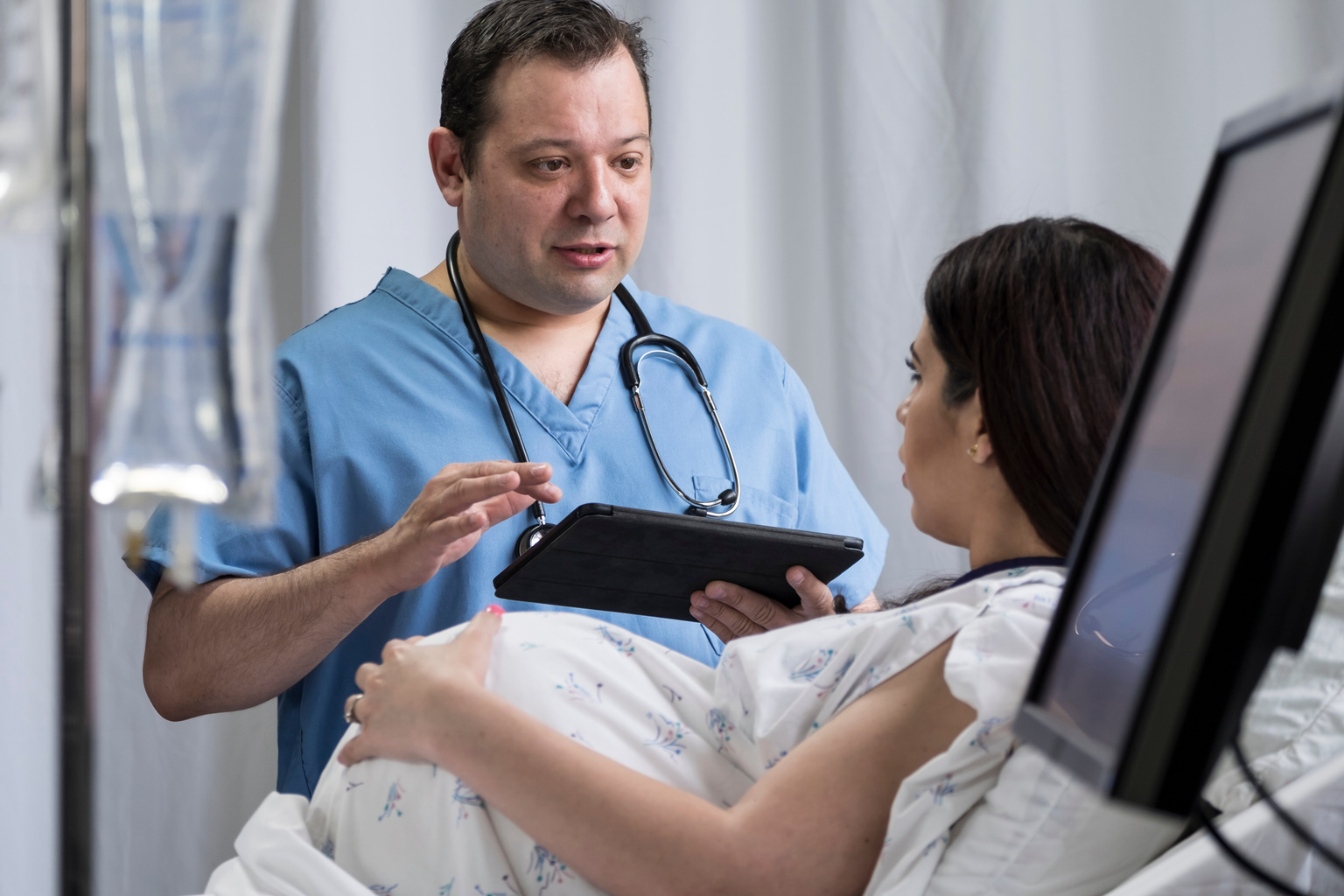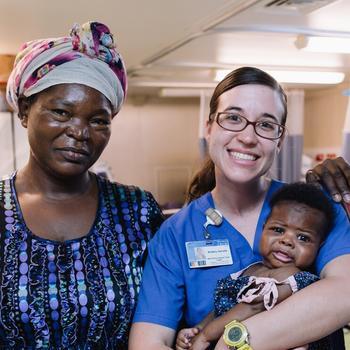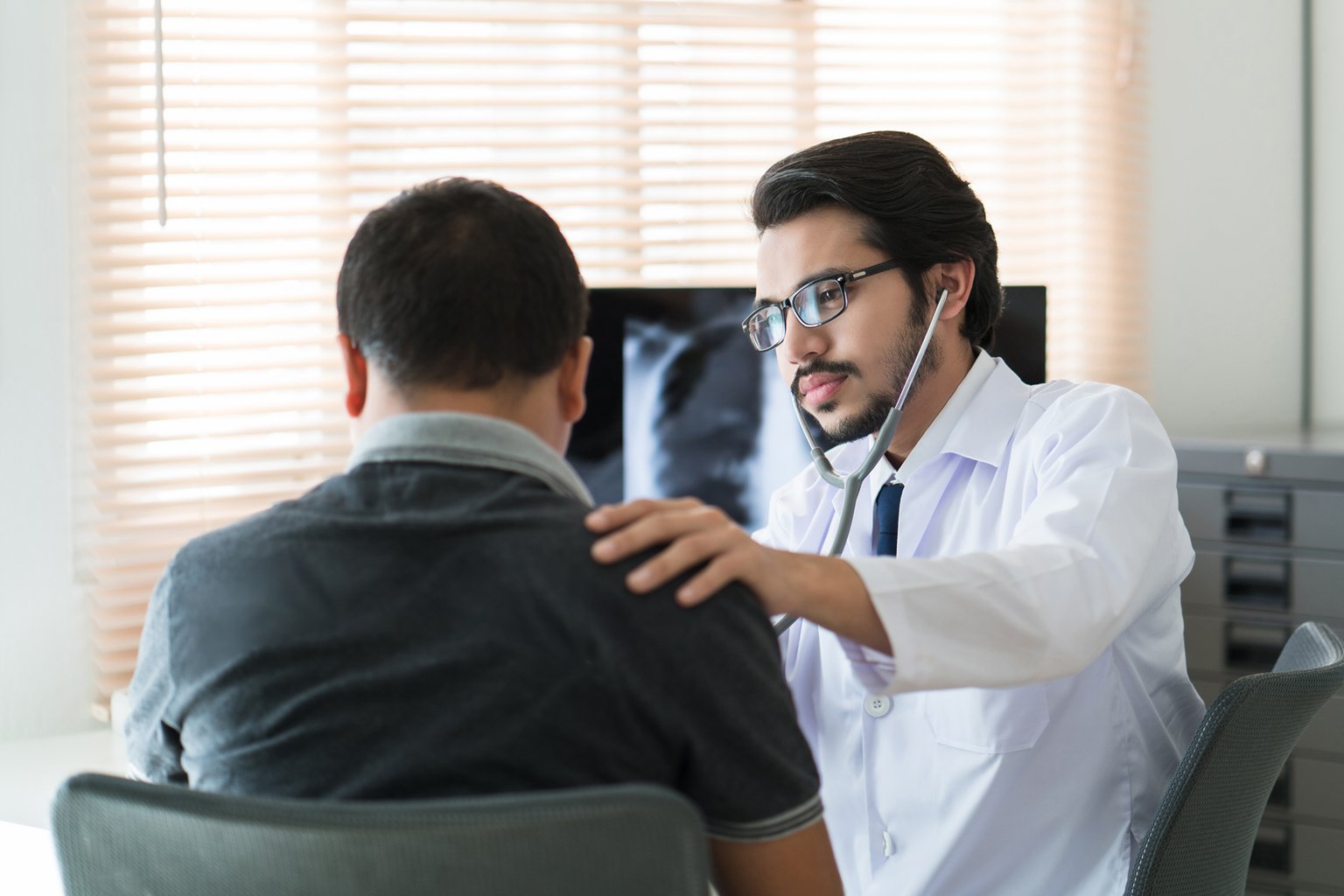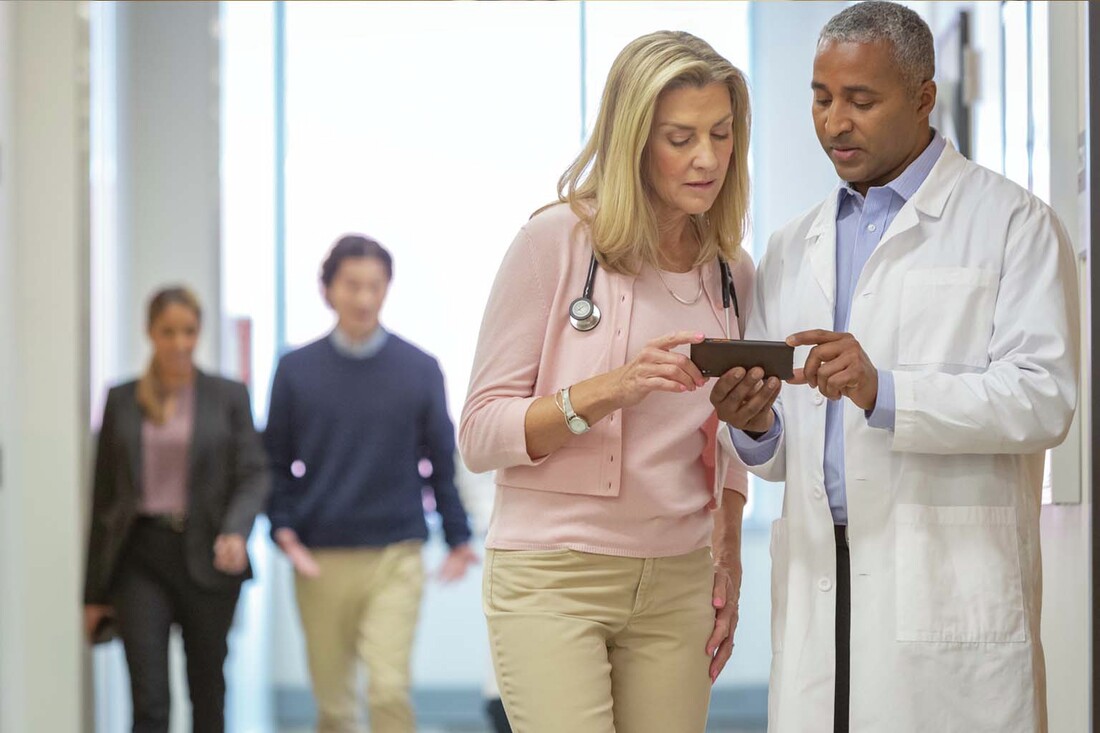As a faculty medical librarian at Kabale University School of Medicine (KABSOM) in Southern Uganda, Emmanuel Twinamasiko believes the students’ education while at the school and their professional development after graduation have been improved by using CDS subscriptions provided through the UpToDate® donations programme.
“They don’t want to practise without it,” he says. “It is a part of them now.”
UpToDate donations programme for resource-limited communities
In 2019, KABSOM received a donated subscription through the Better Evidence program at Boston-based Ariadne Labs. As part of that process, the medical school was required to nominate a “champion” to help manage the subscription, and Twinamasiko took on the job. He is responsible for training KABSOM staff and students to use the solution, spreading awareness of its availability and assisting users in registering their accounts. The user community includes:
- Students training to be doctors, nurses, and other health professionals
- Lecturers teaching the students
- Medical staff
“Generally, people appreciate what UpToDate can bring in their profession,” Twinamasiko says, noting he can see the programme’s value to the school and hospital demonstrated in the usage statistics.
Medical education support in Uganda
The KABSOM community uses CDS to enhance education and care in a variety of ways:
- Lecturers use topics as course-building resources
- Lecturers refer students to topics to follow up on class lessons
- Students uses articles and tools to build care plans
Twinamasiko also stresses that with continual updating of information, a resource like UpToDate enables his community to have timely and quick access to evidence. This includes changing best practices, which improves care standards and makes lecturers’ work easier, since they are no longer constantly “labouring” at updating their course notes. “Things are changing all the time, and UpToDate fits and helps to back up very well,” he says.
Mobile access helps overcome technical barriers
The greatest benefit, Twinamasiko believes, is providing students consistent access to CDS resources via personal mobile devices. This is important in a region that experiences frequent internet connectivity issues that can challenge the pursuit of study, business, and patient care.
Downloading content to their devices means students “are able to access it any day, anytime they want,” he says. “It is now very difficult to live without UpToDate.”
To learn more, download Emmanuel Twinamasiko’s complete story.





